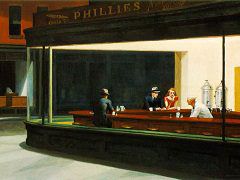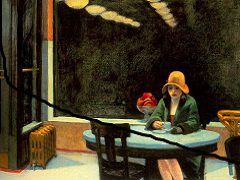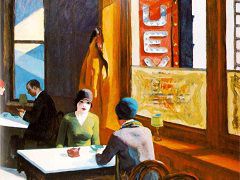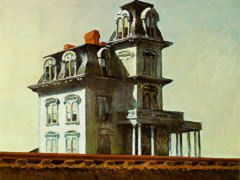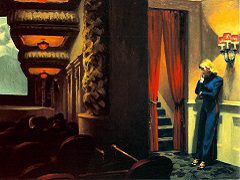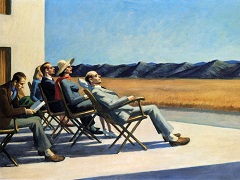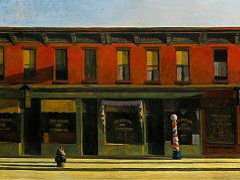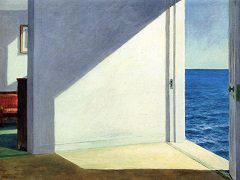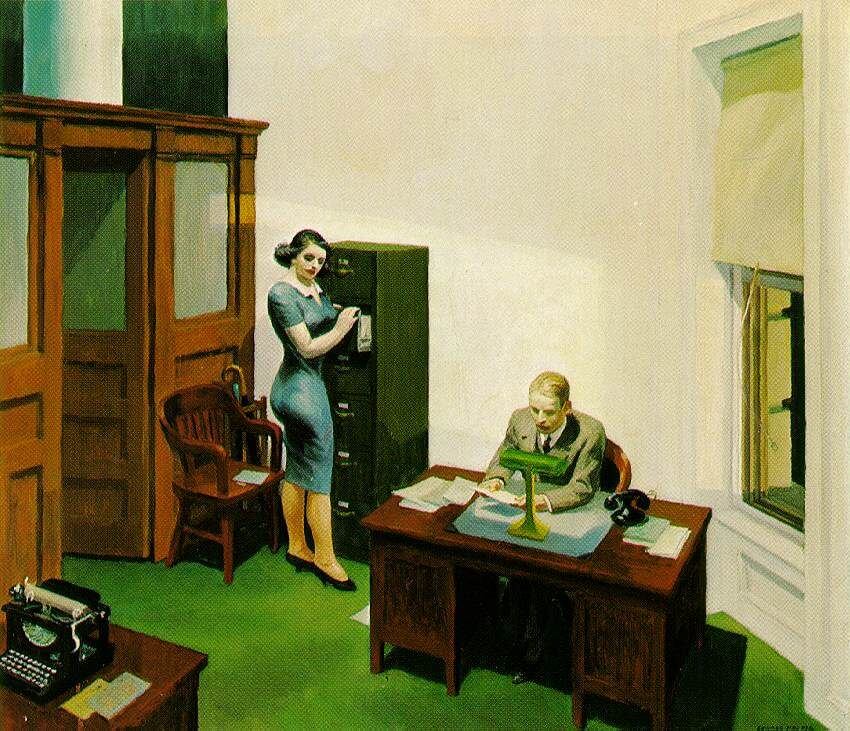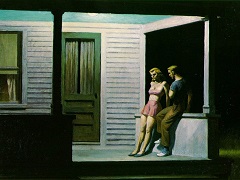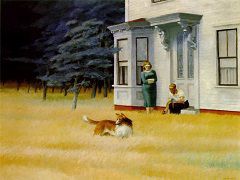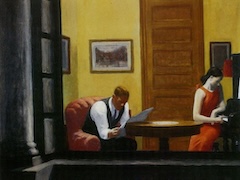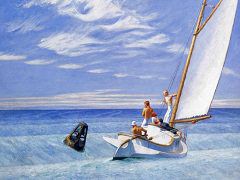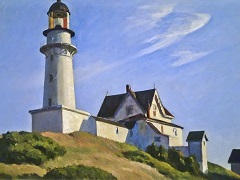Cape Cod Morning,1950 by Edward Hopper
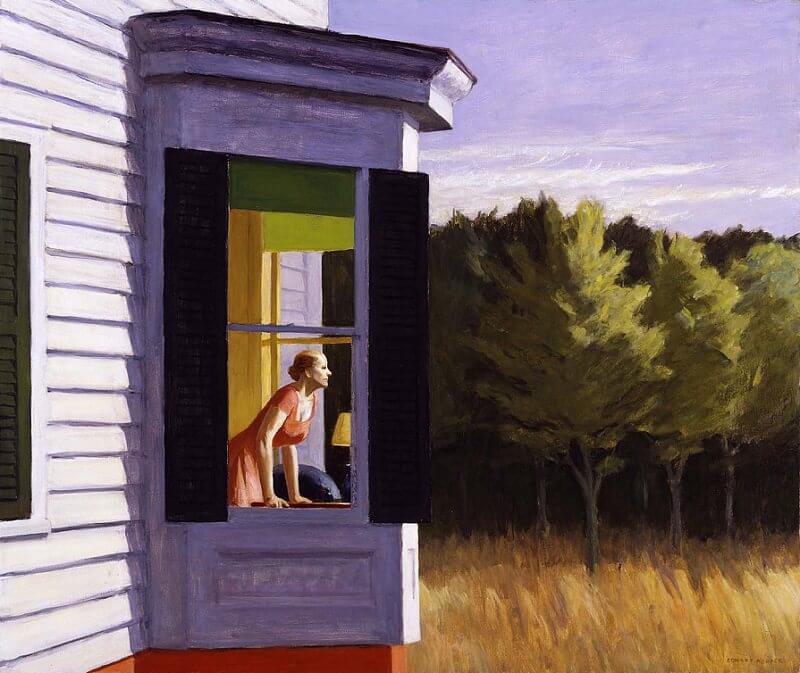
When Hopper paints a house, a balcony, or an interior, he leaves no doubt as to the time of day. We see morning sunlight slanting through a curtain, or the noontime glare, late afternoon shadows, approaching dusk, or night, a
tiny corner of a night in the big city, illuminated by electric lamps, spotlights, neon signs. In every picture we know precisely what time of day or night it is, and at the same time we sense that time is standing still, and
that nothing will change. We know that for the person standing at that window or seated at that table, this is the one, inescapable reality, at once representing the universe and a tiny slice of it.
Hopper gives us clues as to the nature of this existence, a thousand details presented with the utmost clarity. And yet we sense that, ultimately, we can know absolutely nothing about it. The only thing we can be certain of is
our own ignorance.
In Cape Cod Morning, a woman looks out, tempted to the window by the morning sun, narrowing her eyes against the bright light. It is a moment of boundless expectation. But it has been depicted by a man who knew what
afternoon and evening would bring, who knew that expectations this great were bound to be disappointed. With the emptiness and loneliness of the evening picture, which he painted first, Hopper anticipated the ultimate meaning
of human existence.

